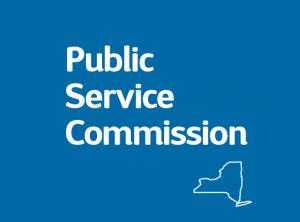New York Extends Smart AC Program to Master-Metered Consumers

The New York Public Service Commission has approved an electric utility’s proposal to include public housing residents as well as tenants in master-metered apartment buildings in the utility’s program offering summertime cash rebates to those customers who permit the utility, Consolidated Edison Company of New York (ConEd), to remotely control their room air conditioners (ACs) during brief periods of high demand for electricity.
The ruling expands eligibility for an existing program that enables ConEd to administer a tariffed demand response measure under which it can briefly interrupt service to participating residential and small business customers with central AC systems. Under ConEd’s planned expansion of its “Smart AC” program, participants will be provided, free of charge, a Wi-Fi-equipped sensor (or “smart plug”) that will let the utility and the customer remotely control each individual window AC unit. The program is designed to cut back on AC usage only a few hours at a time and only during periods of peak draw.
The utility said that turning off ACs for limited amounts of time will raise room temperatures only a few degrees, thus causing no significant diminishment in comfort levels. According to the commission, while approximately 21,000 electricity customers currently participate in the company’s long-successful Smart AC program, it was projected that millions more could benefit from the program. In fact, the commission noted, it was estimated that there are at least seven million room AC units in New York City. The commission estimated the associated financial rewards for those AC users to be anywhere from $22 to $95 per year. The commission said that the smart plug technology advances an opportunity to involve a potentially large number of customers who heretofore traditionally have not been engaged in managing their electricity use. Finding that ConEd’s existing smaller-size pilot program had already achieved a cost-effective scale, the commission determined that the proffered expansion represents a significant growth opportunity.
The commission observed that ConEd generally has spent most of its annually authorized budget earmarked for specific demand response pilots on smart curtailable appliances in the residential market, thus requiring the utility to place customers interested in participating in the Smart AC program on long waiting lists. But under the new tariff, which was originally developed for central AC systems using an automated thermostat, the Smart AC program will be able to achieve both greater penetration of demand response assets to drive peak load reductions and support electric grid reliability, as well as reach the relatively untapped and historically unengaged master-metered tenant market segment, the commission said.
Concomitant with the continued growth in ConEd’s Smart AC kit program, the commission encouraged the utility to also pursue further opportunities to spur innovation and competition to reduce costs to ratepayers. Re Consolidated Edison Co. of New York, Inc., Case 17-E-0526, Dec. 14, 2017 (N.Y.P.S.C.).



